WASHINGTON — CHANGE Illinois Executive Director Madeleine Doubek called on the U.S. Supreme Court justices to exhibit courage by ending partisan gerrymandering following today’s oral arguments in two key cases.
The Supreme Court heard arguments Tuesday for two partisan gerrymander cases — a Republican map from North Carolina and a Democratic one from Maryland.
“These maps represent some of the worst in the country,” said Madeleine Doubek, Executive Director of CHANGE Illinois, who is leading the Fair Maps Amendment reform efforts in Illinois embodied in SJRCA 4 and HJRCA 15.“Without a shadow of a doubt, these two gerrymanders make it clear neither party has a monopoly on virtue when it comes to rigging the system for political gain.
“While many of us nationwide are concerned about Russians interfering with the right of citizens to cast votes,” she said, “why aren’t just as many of us outraged about our own politicians hacking the system through gerrymandering to make our votes virtually meaningless? We should be. Let’s hope our U.S. Supreme Court justices have the courage and foresight to make partisan gerrymandering unconstitutional and to give states a clear pathway toward fixing their own maps.”
In hearing these two cases, the Supreme Court seemed to divide ideologically; with the more liberal justices decrying the practice of gerrymandering, while some of the conservative members defended the rights of state lawmakers to draw political maps. Chief Justice John Roberts and Justice Brett Kavanaugh (the only member of the court who’s never heard a gerrymandering case before) did seem to epouse middle-of-the-road views, but neither justice gave themselves away as the possible, but crucial, fifth vote needed to throw out partisan gerrymanders.
One big concern from the justices is what sort of test would need to be put into place, as Justice Neil Gorsuch noted, to prevent the Court from having to hear each and every such partisan gerrymandering case.
In Lamone v. Benisek, Maryland’s Democratic gerrymander, the Court heard a case involving a concerted effort by the state’s Democratic party in 2011 to craft a congressional map that would knock off a sitting Republican incumbent and move the state’s congressional delegation from a 6-2 Democratic majority to a 7-1 majority. In order to do so, they stretched one district from the suburbs and exurbs of Washington, D.C. in Montgomery County to shift the partisan makeup of the entire eastern, rural part of the state.
In North Carolina’s Republican gerrymander, Rucho v. Common Cause, the GOP map is notorious because of how blatant and open politicians were about rigging it for partisan advantage. Republican legislators bragged about their maps publicly, saying their 11-3 congressional advantage existed only because they could not figure out how to draw themselves a 12-2 advantage over Tar Heel State Democrats.
For the past several decades, Illinois’ maps have represented an incumbency-protection racket. Politicians in control draw maps to predetermine outcomes for their own political party, diluting voters’ choices. A broad Supreme Court precedent potentially could impact Illinois.
In Illinois, party leaders craft maps that will result in the highest number of guaranteed seats for their party. That practice minimizes competition and helps sitting representatives and senators stay in office. Illinois Democrats have played this game during the past two remaps, whereas Republicans did the same thing when they controlled the map-drawing process in the 1990s.
In 2018, the result of gerrymandering meant that nearly half of Illinois’ General Assembly races were uncontested with only one choice on the ballot. It also resulted in the packing and cracking of communities of color in order to serve incumbents, rather than creating districts that truly reflect Illinois’ diversity.
Because the Supreme Court’s rulings on the two partisan gerrymanders likely won’t come until June — after the Illinois General Assembly adjourns for the year — Illinoisans can and should fight gerrymandering here today by asking their state representatives and senators to sign on as cosponsors of HJRCA 15 and SJRCA 4, the Fair Maps Amendment.
